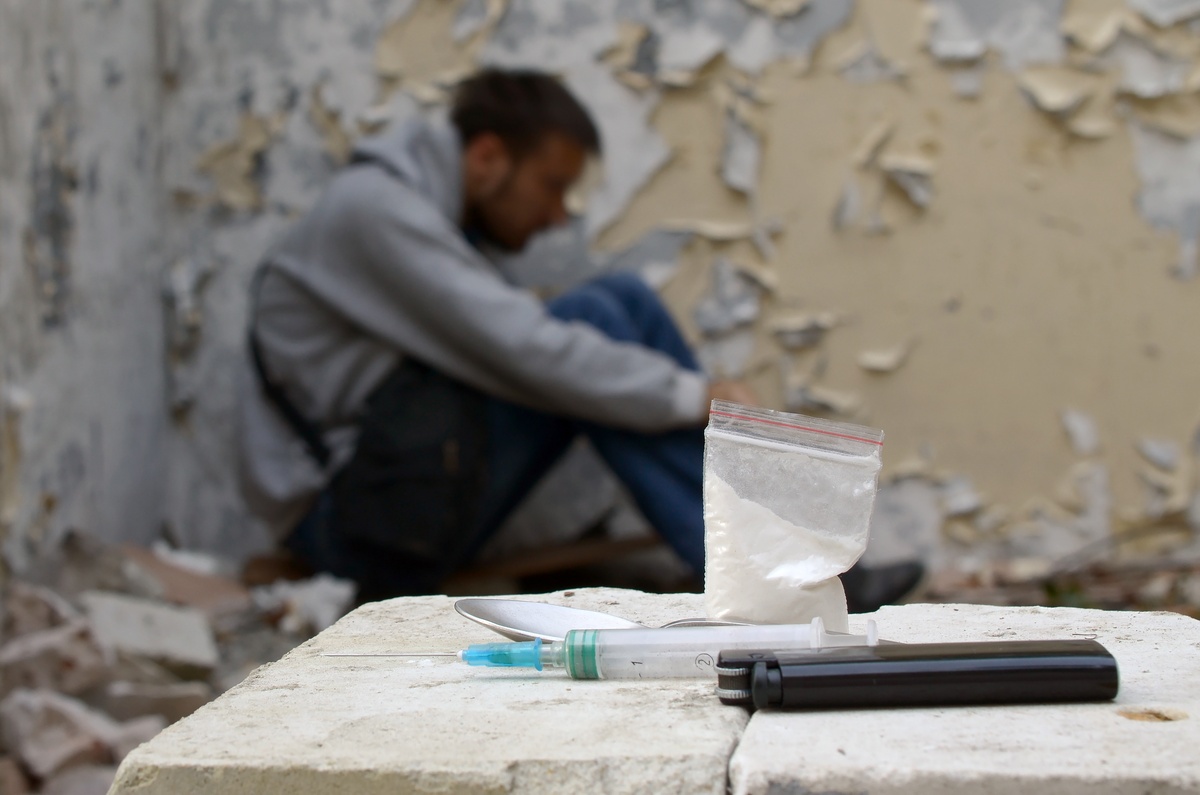Cocaine Addiction Causes, Symptoms, and Treatment Options

We’re well aware of the challenges attached to cocaine addiction: the undeniable cravings, the damage it deals to your health, and the way it stretches your relationships thin. But with the right cocaine addiction treatment program, you or your loved one can turn the page to a cocaine-free chapter. Learn more about the symptoms and treatment options for cocaine addiction, and if you’re in need of professional support, please call The Edge Treatment Center today. Help is just a phone call away.
What Is Cocaine?
Cocaine, a powerful stimulant drug, is derived from the coca plant and classified as a Schedule II controlled substance. Its history dates back to ancient civilizations in South America, where it was used for various purposes. Today, cocaine is known for its highly addictive nature and illegal recreational use, and can be found in various forms such as powder cocaine (cocaine hydrochloride) and crack cocaine.
What Is Cocaine Addiction?
Cocaine addiction is a complex condition characterized by a compulsive urge to seek out and use cocaine despite negative consequences. It is a chronic brain disorder that can have severe physical, psychological, and social repercussions. Individuals who become addicted to cocaine often experience intense cravings, loss of control over their drug use, and withdrawal symptoms when they try to stop using. Over time, tolerance to the drug can develop, leading individuals to increase their dosage to achieve the desired effects.
Usage Methods
Cocaine can be consumed by snorting, injecting, or smoking, with each method affecting the body differently. Snorting powdered cocaine through the nose leads to a rapid onset of effects, while injecting directly into the bloodstream brings an intense, high-risk high. Smoking crack cocaine offers an immediate, intense euphoria but prompts repeated use due to its short-lived effect. The method of ingestion dictates the intensity and duration of the high, with smoking delivering a quicker, more potent experience than snorting.
Cutting Agents
Cutting agents are substances added to cocaine during production to increase volume and potency while reducing costs for dealers. Common cutting agents include levamisole, caffeine, baking soda, and laxatives. These additives not only dilute the purity of cocaine but also pose serious health risks to users. Consuming cocaine laced with cutting agents can lead to adverse reactions such as allergic reactions, skin conditions, or even life-threatening complications like organ damage or overdose.


We’re Here to Help You Find Your Way
Would you like more information about mental health or drug addiction? Reach out today.
Signs & Symptoms of Cocaine Addiction
Being aware of the signs and symptoms of cocaine addiction can help with early intervention, or a quicker recovery. Here are some symptoms and signs of dependence to watch out for:
Recognizing Symptoms
Identifying addiction behaviors is crucial in spotting cocaine addiction. Look for frequent smoking or sniffing, sudden weight loss, and financial troubles. Recognize signs of alcohol abuse paired with cocaine consumption. Early detection is vital for successful treatment.
Cocaine Dependence
Cocaine dependence involves a compulsive need for the drug to function normally. Distinguish it from occasional use by observing increased tolerance and withdrawal symptoms. Psychologically, dependence manifests as cravings and an inability to stop using despite negative consequences. Physically, users may experience heightened heart rate and insomnia. Breaking free from cocaine dependence poses significant challenges due to intense cravings and potential relapse risks.

Cocaine Addiction Treatment Options
Cocaine addiction treatment, while tailored to individual patient needs, is a process that starts with detoxification and ends with ongoing aftercare support. Here’s a rundown of the stages from start to finish:
Detoxification
Detoxification is the first step of the cocaine addiction treatment process, and entails ridding your body of drugs and toxins in a controlled setting. Intense withdrawal symptoms such as strong cravings and psychological discomfort are common, and medical oversight is essential to ensure the detox is conducted safely and effectively.
Inpatient Care
Inpatient treatment is crucial for dealing with serious cocaine addiction. It offers a safe and structured environment for recovery, with continuous monitoring and support. Patients receive intensive therapy sessions and medical supervision, which help in managing withdrawal symptoms effectively. The strict routine and limited access to alcohol in inpatient facilities reduce the risk of relapse, creating a supportive and focused setting for individuals to recover.
Outpatient Support
Outpatient programs provide the opportunity for individuals to seek cocaine addiction treatment without disrupting their work or personal commitments. Through ongoing counseling and support, long-term sobriety can be achieved even without being in a residential facility. Regular check-ins and therapy sessions help individuals stay focused on their recovery goals, promoting self-management skills and independence.
Aftercare
Maintaining sobriety post-rehabilitation is crucial for individuals battling cocaine addiction. This phase involves ongoing therapy, engagement in support groups, and access to resources to prevent relapse and promote a drug-free life.

We’re Here to Help You Find Your Way
Do you have more questions about mental health or drug addiction? Reach out.
Therapies for Cocaine Addiction
Cocaine addiction treatment involves a handful of therapies, including behavioral techniques and medication-assisted treatment (MAT) that work together to get to the root of your addiction. Here’s an overview of the therapies you can expect in inpatient or outpatient rehab:
Behavioral Therapies
Behavioral therapies are pivotal in treating cocaine addiction, focusing on altering thoughts and behaviors. Motivational interviewing encourages individuals to find internal motivation for change, enhancing treatment commitment. Cognitive-behavioral therapy (CBT) targets negative thought patterns and teaches healthier coping mechanisms. These therapies empower individuals to understand their triggers, manage stress, and resist cravings, fostering resilience against relapse.
Medication-Assisted Treatment
Medication-assisted treatment plays a crucial role in managing cocaine addiction, especially when combined with behavioral therapies. Combining medication with behavioral therapies can enhance cocaine addiction treatment outcomes by treating both the physical and mental aspects of addiction, and addressing co-occurring psychological conditions that contribute to substance abuse. While there are currently no FDA-approved medications specifically for cocaine addiction, certain drugs have shown promise in reducing cravings and withdrawal symptoms. Medications like disulfiram, for example, may deter cocaine use by causing unpleasant reactions when consumed, reinforcing abstinence behavior.

Causes of Cocaine Addiction
There are several factors that can contribute to the development of cocaine addiction. One of the main causes is the powerful and rapid effects of cocaine on the brain. Cocaine increases the levels of dopamine in the brain, which creates a feeling of euphoria and pleasure. This intense high can quickly lead to addiction as individuals seek to recreate that sensation.
Environmental Factors
Additionally, environmental factors play a significant role in the development of cocaine addiction. Growing up in an environment where drug use is normalized or readily available can increase the likelihood of developing an addiction. Traumatic experiences, such as abuse or neglect, can also contribute to substance abuse issues, including cocaine addiction.
Genetic Factors
Genetics, along with biological and environmental factors, can predispose individuals to cocaine addiction. A genetic vulnerability, when exposed to certain environments, can significantly increase the risk of developing a substance use disorder. Addressing these complex causes is key to overcoming cocaine addiction, with therapy and support groups playing a crucial role in helping individuals achieve a drug-free life. Understanding and treating the underlying issues are essential for recovery and long-term health.

We’re Here to Help You Find Your Way
Do you need advice about mental health or drug addiction? Reach out today.
Effects of Cocaine
Cocaine delivers pleasurable immediate effects that can quickly lead to addiction and dependency, or worse, overdose. Here are the short- and long-term effects of cocaine use, as well as the risks associated with overdose:
Immediate Effects
Cocaine immediately impacts the body and mind, leading to a surge of energy and euphoria. This drug alters neurotransmitters, particularly dopamine, in the brain, causing intense pleasure. The short-term physical consequences of cocaine use include increased heart rate, elevated blood pressure, and dilated pupils. On the psychological front, users may experience heightened alertness, irritability, and anxiety.
Long-Term Consequences
Chronic cocaine abuse can have severe long-term effects on physical health. Prolonged use may result in cardiovascular issues such as heart attacks and strokes. Mental health consequences include anxiety, depression, paranoia, and hallucinations due to altered brain chemistry. Cognitive function deteriorates over time with impaired decision-making and memory loss. Socially, individuals may face strained relationships, financial difficulties, job loss, and legal troubles due to their addiction.
Overdose Risks
Factors that contribute to an increased risk of a cocaine overdose include the purity of the drug, method of consumption, and individual tolerance levels. Symptoms of a cocaine overdose range from seizures and chest pain to respiratory failure and coma. Prompt medical intervention is crucial to prevent fatal outcomes such as cardiac arrest or stroke associated with severe cocaine overdoses.

Cocaine Withdrawal
Withdrawal is a critical phase in the recovery process, and is typically remedied with medically-supervised detox at a rehab center. During this stage, it’s important that the body and mind are carefully supported to ease the symptoms of those in recovery. Here’s a brief introduction to the symptoms of cocaine withdrawal as well as strategies for withdrawal management:
Withdrawal Symptoms
Common withdrawal symptoms include fatigue, depression, increased appetite, and intense cravings for cocaine.
Individuals may also experience irritability, anxiety, disturbed sleep patterns, and lack of pleasure in activities.
During the detoxification process, withdrawal symptoms typically peak within the first few days and gradually decrease over weeks.
The physical discomfort associated with cocaine withdrawal can manifest as body aches, tremors, and chills. Emotionally, individuals may struggle with mood swings, agitation, and difficulty concentrating.
Withdrawal Management
When managing cocaine withdrawal, it’s essential to stay hydrated, maintain proper nutrition, and engage in regular exercise for physical health. Medical supervision is key to monitor vital signs and administer medications for severe symptoms like depression or insomnia. Additionally, counseling and therapy address the psychological aspects of withdrawal, helping individuals cope with cravings, learn healthy coping mechanisms, and tackle underlying issues related to their addiction. These combined strategies are vital for a successful transition from addiction to recovery.

We’re Here to Help You Find Your Way
Would you like more information about mental health or drug addiction? Reach out today.
Combining Substances
The interplay of cocaine with other substances isn’t just dangerous — it’s potentially fatal. Here are the core risks associated with mixing cocaine with other drugs:
Mixing Dangers
Mixing cocaine with other substances, such as alcohol or opioids, significantly increases health risks. Cocaine and alcohol together produce cocaethylene, which is more toxic and increases the risk of heart problems and sudden death, while cocaine and opioids can cause respiratory depression and overdose — a potentially fatal combination. Polydrug use, particularly with stimulants like cocaine, can overwhelm the body’s systems, causing organ damage and long-term health complications.
Common Combinations
Cocaine and Alcohol: A common combination that produces cocaethylene, increasing the risk of heart issues.
Cocaine and Heroin: Known as a "speedball," this mixture poses a high risk of overdose and respiratory failure.
Cocaine and Marijuana: Individuals may mix these for varied effects like enhancing euphoria or countering side effects.

Relapse Prevention
Preventing relapse is a critical part of the recovery process, requiring a proactive approach to protect an individual’s newfound sobriety. With these strategies, cocaine addiction treatment professionals can ensure that individuals at the end of their recovery journey maintain the soberness they’ve worked so hard for:
Strategies Overview
Incorporating a comprehensive approach, cocaine addiction treatment combines therapy, counseling, and medical interventions to address the physical and psychological aspects of addiction. Strategies emphasize understanding triggers and building coping skills to sustain sobriety, while offering holistic care through multidisciplinary strategies to meet the complex needs of individuals.
Individualized Cocaine Addiction Treatment Plans
Individualized treatment plans play a vital role in ensuring successful recovery from cocaine addiction. These plans are tailored to each patient's specific circumstances, considering factors such as the severity of addiction, co-occurring mental health disorders, and personal preferences. With personalized cocaine addiction treatment, individuals are more likely to engage actively in their recovery journey.
Long-Term Support
Long-term support and aftercare are essential components in sustaining recovery from cocaine addiction. Support groups like Narcotics Anonymous offer peer support and a sense of community for individuals navigating life after rehab. Counseling sessions provide ongoing guidance and help individuals address underlying issues contributing to their addiction.
Ongoing Therapy
Ongoing therapy sessions are instrumental in preventing relapse by equipping individuals with coping strategies and tools to manage cravings effectively. These sessions also offer a safe space for individuals to explore challenges they may face post-rehabilitation. By continuing therapy, individuals can maintain their progress and stay focused on their recovery goals.
Support Systems
Building a strong support network is critical for individuals in rehab as it provides encouragement, understanding, and accountability. Family members, friends, sponsors, and healthcare professionals all play important roles in this network. By surrounding themselves with positive influences, individuals can navigate challenges more effectively and stay motivated on the path to long-term sobriety.

Evaluating Effectiveness
Assessing the efficacy of cocaine addiction treatment is an ongoing process, and necessary in order to continue improving upon current treatment methods. Here’s an overview of the elements that shape success rates and inform the continuous improvement of treatment programs:
Cocaine Addiction Treatment Success Rates
Effective cocaine addiction treatment hinges on several key factors. Adherence to treatment plans and personal motivation are crucial for positive outcomes, as they drive commitment and engagement in the recovery process. Strong support systems, including family, friends, or groups, bolster motivation and focus. Research supports that individualized treatments, tailored to each patient’s unique needs and challenges, especially those that may lead to relapse, result in better success rates than standard treatments. This comprehensive approach ensures that all aspects of cocaine addiction treatment are addressed, leading to sustained recovery.
Continuous Improvement
Continuous improvement in cocaine addiction treatment programs is crucial, involving regular evaluation and updates to adapt to patients’ changing needs. The feedback loop between patients and healthcare providers is essential, as patient experiences with therapies inform necessary adjustments. Healthcare providers analyze this data to implement changes, enhancing the efficacy of cocaine addiction treatment and patient outcomes.
Closing Thoughts
Now that you understand the complexities of cocaine addiction, its effects, withdrawal symptoms, and cocaine addiction treatment options, it's crucial to remember that seeking help is not a sign of weakness but a brave step towards a healthier life. By evaluating the effectiveness of different therapeutic approaches and focusing on relapse prevention strategies, you can increase your chances of successful recovery.
Take charge of your well-being today by reaching out for assistance. Whether it's exploring cocaine addiction treatment options, attending therapy sessions, or connecting with support groups, remember that you’re not alone in this battle. Your commitment to seeking help will pave the way for a brighter and drug-free future.
Cocaine Addiction Treatment Is Within Reach. Call Us Today!
Cocaine addiction is a challenging road to travel, especially if you’re navigating it alone. Recognizing the need for support — and asking for it — is the first step toward reclaiming control over your life. At The Edge Treatment Center, we specialize in evidence-based cocaine addiction treatment, offering compassionate care and evidence-based methods to help you break free from the grip of addiction.
We fully understand the physical, mental, and emotional complexities of cocaine dependency, and are committed to guiding you through every step of your recovery journey. From uncovering the underlying causes of your addiction to equipping you with coping strategies for long-term sobriety, your treatment experience will be both transformative and sustainable.
Take the courageous step toward a a cocaine-free lifestyle by reaching out to The Edge Treatment Center today, and discover how our personalized cocaine addiction treatment can change your life for the better.
Treatment Modalities We Offer
At The Edge Treatment Center, we use a comprehensive set of scientifically-supported treatments to empower individuals on their path to recovery, including:
Case Management
Case management helps patients connect with the right resources to address their needs and support their journey to recovery.
CBT
Cognitive behavioral therapy (CBT) is a helpful method that assists individuals in identifying and changing harmful thoughts and actions connected to drug abuse.
DBT
DBT, known as dialectical behavior therapy, is a type of cognitive therapy that aims to help individuals accept their emotions while also working towards making positive changes. It focuses on regulating emotions to combat substance abuse issues.
EMDR
EMDR is a therapy that uses eye movements to address traumatic memories linked to addiction.
Experiential
By taking part in enjoyable activities, people in recovery can address and handle previous traumas that often play a role in addictive tendencies.
Family Counseling
In cocaine addiction treatment, involving family members is key. They join the recovery journey to improve relationships and offer a strong support network for those seeking help.
Group Therapy
In group therapy, people with drug problems come together to share their stories and help each other overcome substance abuse issues.
Individual Therapy
Individuals are provided with personalized therapy sessions that focus on addressing their unique challenges and behavioral patterns, empowering them to lead a drug- and alcohol-free lifestyle.
MAT
Behavioral therapies and approved medications are combined in medication-assisted treatment (MAT) to tackle opioid use disorders and support the journey to recovery.
TMS
Transcranial magnetic stimulation (TMS) is a method that doesn't involve surgery and uses magnetic fields to stimulate brain cells. It has shown promise in helping to decrease the strong desires linked with addiction.
Motivational Interviewing
This type of counseling helps people discover their inner drive to make good changes, especially when dealing with substance abuse problems like cocaine addiction.
Trauma-Informed Care
Recognizing the importance of trauma symptoms and their role in the addiction process for each person is a key aspect of the treatment approach.

We’re Here to Help You Find Your Way
If you or a loved one is struggling with addiction, there is hope. Our team can guide you on your journey to recovery. Call us today.
FAQ
